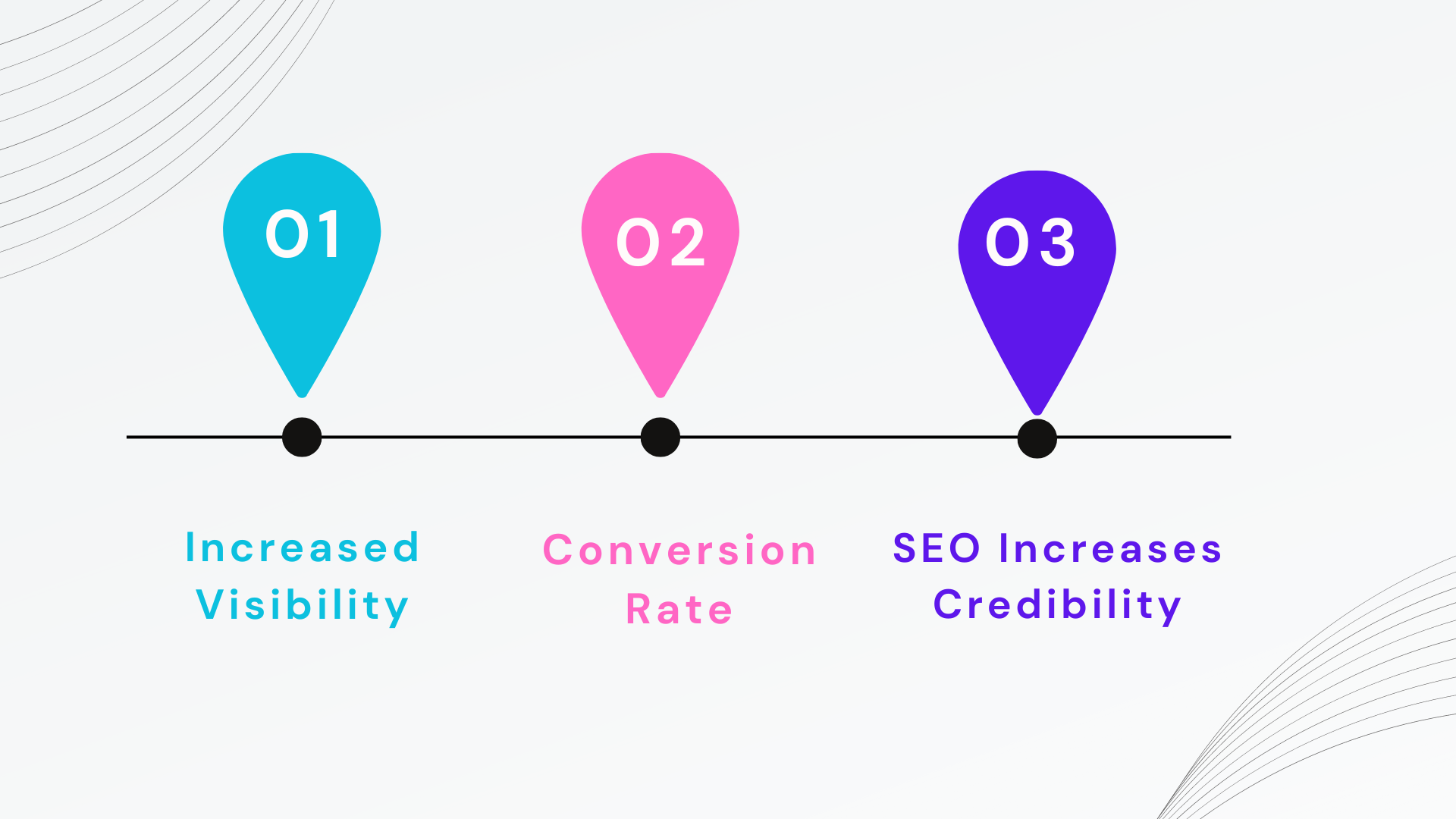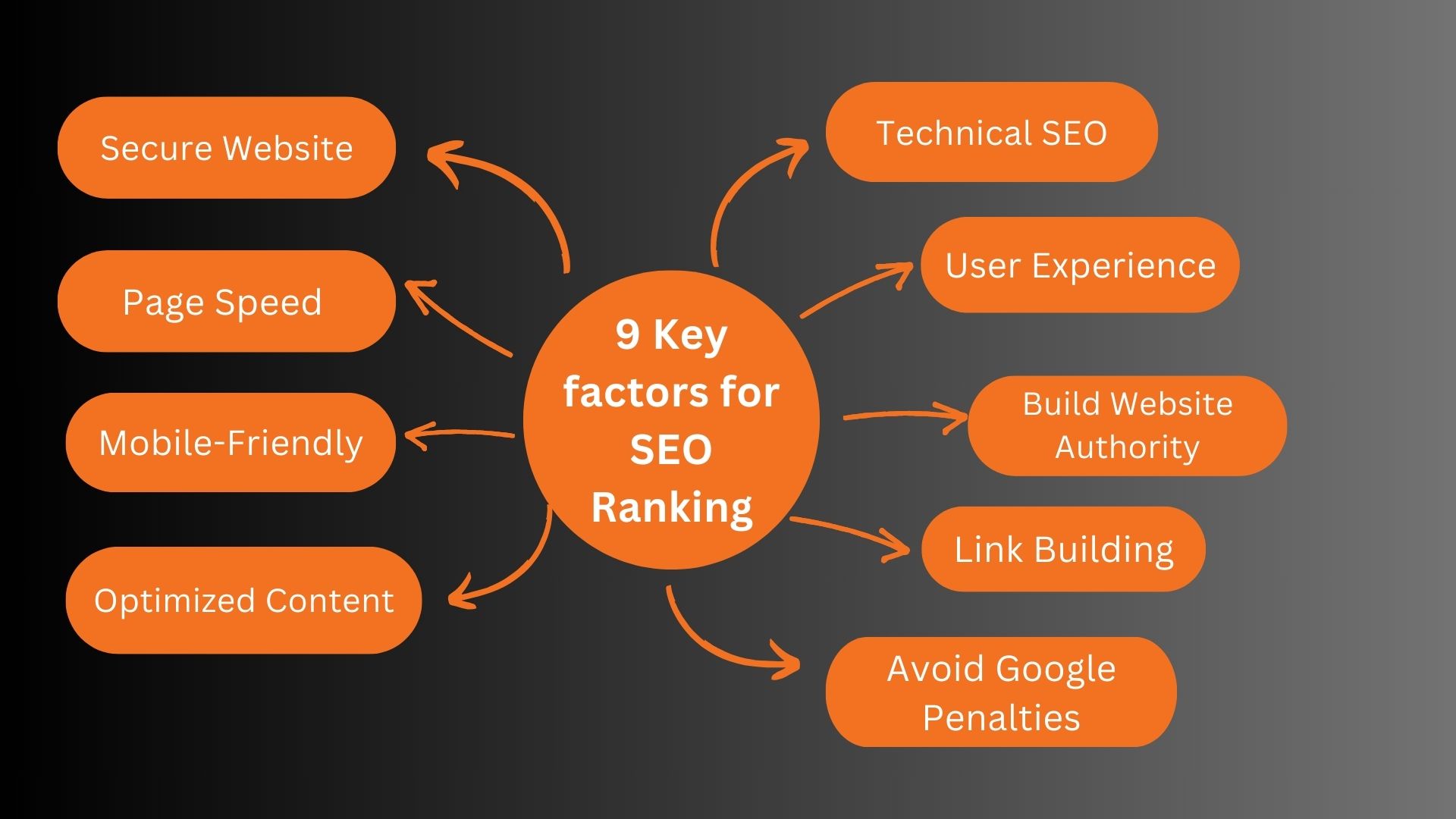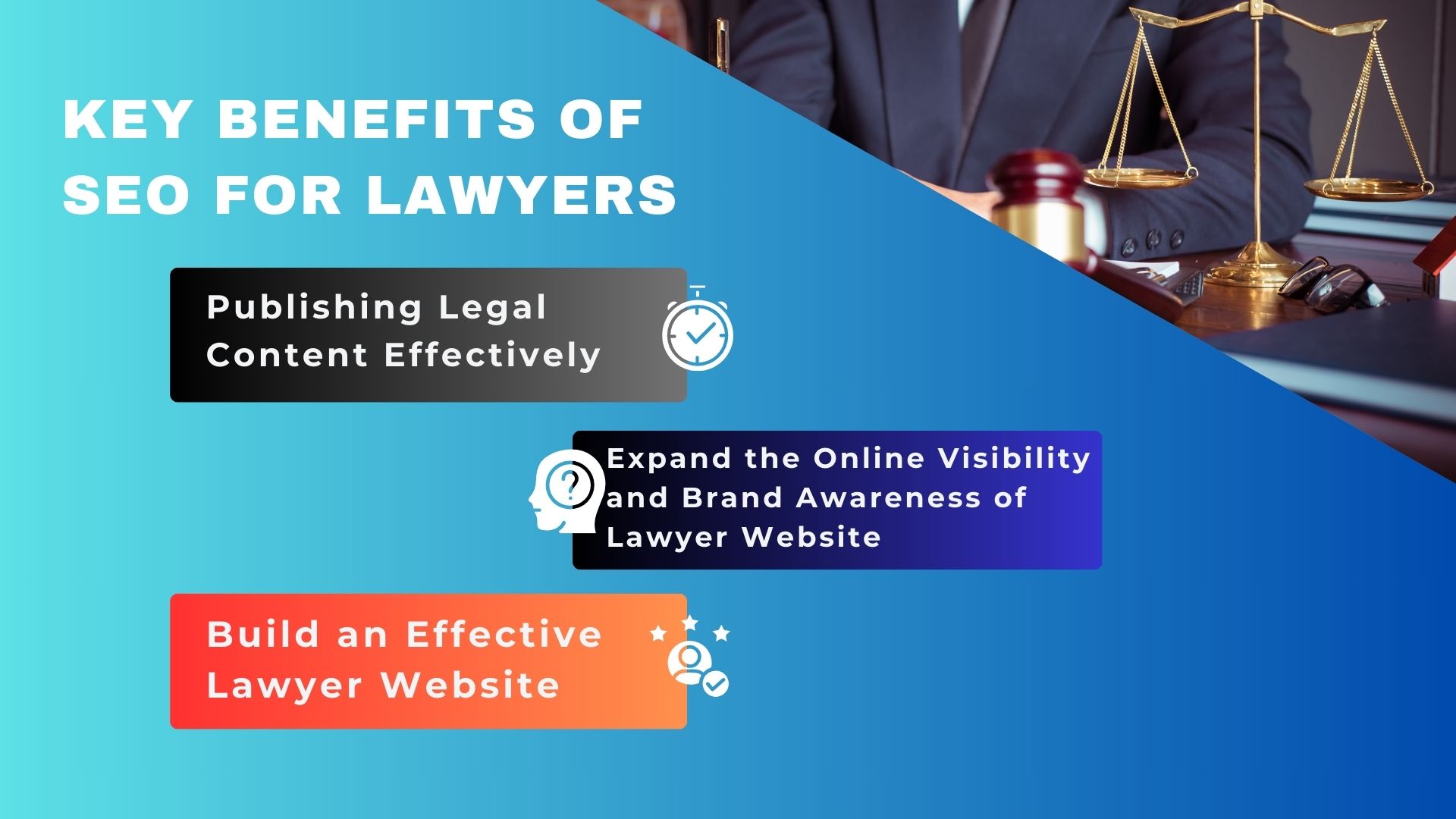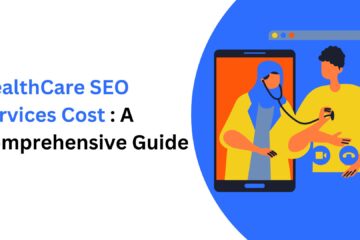Are You Expanding Your Legal Practice? We Understand the Challenges You May Facing Wanting to discover ways of increasing visibility of Your Law Firm Increasing chance that individuals seeking your services find you? We Have Solutions
Explore the essential principles to maintain and enhance the online presence of your law firm as an attorney, while consistently creating leads.
What Is Law Firms SEO?
Law Firms SEO is the technique that improves the site of a law firm an effort to improve the rank of their website in search engines, and to increase website traffic. This is accomplished with the goal of attracting new customers as well as creating leads related to legal services.
If you’re looking to get ranked in Google and get more customers SEO is a crucial element to the effectiveness of the marketing strategies you employ for law firms.
SEO’s purpose specifically for Law Firms is to improve the organic (non-paid) users of the websites of law firms through optimizing the site for relevant phrases and terms that potential customers might be using to search for assistance with legal issues.
Why SEO is Important for Law Firms Website
There is a lot of competition in the legal profession. Numerous law firms compete for the interest of prospective customers. How therefore can you ensure that your legal practice stands out from the competition?
One effective strategy to increase visibility online for legal services providers is through SEO (search engine optimization). SEO serves to enhance visibility on search engine results pages (SERPs). When prospective clients search online for legal/lawyers services, your law firm website should appear prominently as one of their first results.

Increased Visibility: Ranking higher in SERPs will draw in more traffic from prospective clients, leading to more leads being generated from each visitor and more opportunities to close new client deals.
Conversion Rate: This refers to the percentage of visitors taking desired actions such as filling out contact forms or scheduling consultations on your site.
SEO Increases Credibility: Optimizing your site for search engine rankings sends the message that your firm is reliable and authoritative, giving potential clients confidence they’re dealing with a reputable law firm.
Expert Seo Company for Lawyers
Here are Some SEO trends to be aware of in 2023:

1. Increase Voice Research:
One SEO trend to watch out for in 2023 is an increase in voice research. More and more people are turning to voice search to locate what they need online; to optimize your law firm website for voice research, consider employing conversational language as well as long-tail keywords people might use when speaking directly into voice assistants.
2. Podcasting:
Producing a podcast can be an excellent way to reach more potential clients while positioning your law firm as an authority within its industry. Podcasting helps develop trust between potential clients and your firm.
3. E-E-A-T: Experience, Expertise, Authoritativeness and Trust
The EEAT principle is an integral component of SEO for law firms. Google rewards websites which showcase experience, expertise, authoritativeness and trustworthiness within their specific fields; to increase website ranking it’s essential that content produced demonstrates this expertise while at the same time positioning your firm as an authoritative source of information and building rapport with potential clients.
4. Core Web Vitals:
Core Web Vitals is important ranking factor of SEO, Core Web Vitals are metrics like page loading speed, LCPs per visit (LPV), FIDs per session and CLSs that form Google’s Core Web Vitals which determines rankings.
6. Rich and Featured Snippets:
Rich and featured snippets are an effective way of providing users with more details about your law firm and website’s content directly in search results, such as reviews or ratings that might entice more clicks to your page. They could include reviews that highlight specific products available from you or can even serve to increase click-through rate to your webpage.
To optimize your site for rich and featured snippets, it is crucial that content be appropriately structured using headings, lists, and other formatting elements that search engines understand quickly and can display in search results.
7. SEO requires Unique Content:
Law Firms that want a successful SEO strategy should create informative, engaging pieces of writing which provide real value to target audiences and are unique enough. Through creating unique pieces of writing you’ll not only enhance SEO for your site, but you will also position yourselves as thought leaders within their industry.
8. Schema Markup:
Schema markup provides search engines with additional data about search queries that they could otherwise not see, leading to improved click-through rates and rich results that improve click-through rates.
9 Key factors for SEO Ranking

Secure Website:
A secure website can be defined as any that uses HTTPS encryption with an active SSL certificate to encrypt user data while also improving search engine rankings.
Page Speed :
Page speed is an integral element in SEO rankings, as slow loading websites have the potential to negatively affect user experiences and cause potential clients to leave before it even loads properly. Be sure to optimize the speed of your page by compressing images, minifying code and using content delivery networks such as CDNs (content delivery networks).
Mobile-Friendly:
A website which is mobile friendly refers to sites designed specifically to be seen and navigated easily on mobile devices like phones or tablets, making navigation and text content optimized for smaller screen sizes such as phones or tablets. Mobile friendly sites have several benefits; first among these being increased accessibility among those using them as it will make more people accessible your site via their phones or other portable devices.
Statista estimates that more than 60% of internet traffic now originates on mobile devices; therefore, if your website is not mobile friendly then you are missing out on an opportunity for growth with potential audiences.
Optimized Content:
Optimized Content is crucial in helping your website rank higher in search engine results pages (SERPs). When your content is optimized, that means it relates specifically to keywords people are searching for and provides informative material, making it more likely that visitors click through to it when it appears in SERPs.
Technical SEO:
Technical SEO (also referred to as technical site optimization or TSO), refers to optimizing a website’s technical aspects in order to make them easier for search engines to index. This involves optimizing things such as its structure, page speed, mobile optimization and security features.
User Experience:
User experience (UX) refers to the overall experience that an end-user has when engaging with your product, system, or website – from initial impression to the final results of interactions with all aspects covered within its scope. UX encompasses every facet of user engagement that occurs from initial interactions to end results and beyond.
Build Website Authority:
Website authority measures how trustworthy and relevant a website is; search engines use this metric when ranking search results. There are various strategies you can employ in order to increase website authority such as:
Content Creation that speaks directly to your target audience should also include creating backlinks from high-quality sites, maintaining an active social media presence, participating in relevant online communities and running search engine optimization (SEO) campaigns.
Link Building:
Link building refers to the practice of acquiring links from other websites back to yours, with an aim of improving its position on search engine results pages (SERPs). It can help improve SEO (search engine optimization) strategies.
Stay away from Google Penalties:
One key way to prevent penalties in SEO is not buying links – doing so would essentially amount to paying someone to vote in favor of your site, which Google sees as manipulative behaviour and can penalize accordingly.
- Don’t overuse keywords: Keyword stuffing is another form of manipulation which Google penalises you for, making the content appear artificial and spammy. Using keywords naturally and sparingly would be more appropriate.
- Create engaging and Original content: if you want to avoid Google penalties. Google wants websites that deliver value for their visitors; thus, creating informative and entertaining material should be your main priority when crafting copy that resonates.
- Avoid Duplicate Content: Duplicate content, defined as material that appears across multiple websites, is something Google frowns upon as it makes finding relevant information difficult for visitors. Be sure all the content posted to your website is unique.
- Fix technical errors: Technical issues, like broken links and crawl errors, can result in Google penalties; so be sure to regularly scan for these types of issues on your site and act upon any that appear as quickly as possible.
- Stay current on Google’s guidelines. As its algorithm constantly adapts, it is vital that you stay aware of their latest guidelines to avoid unwittingly breaking any rules by accident. This will also prevent Google from penalizing any of their listings that accidentally breach these standards.
Key Benefits of SEO for Lawyers
At our increasingly fast-paced digital world, staying ahead of competition is key for success in every industry – law firms being no different. More clients than ever turn towards search engines for legal solutions and services; therefore having an established web presence becomes essential – search engine Optimization (SEO) solutions tailor made specifically for attorneys as well as SEO services for personal injury provide multiple advantages that will radically affect the success of law practices and their success in court.

Publishing Legal Content Effectively:
- Determine your Target Market: Whom are you writing to, what are their specific needs and preferences, and create content specifically targeted towards this audience in order to keep their reading experience enjoyable and beneficial?
- Optimize for SEO: Incorporating keywords that your target audience would search for is key in drawing readers in and increasing readership of your website! This increases readership!
- Target Audience: Engage with your target audience by adding interest through vivid narrative, language and humor into the content you produce. Effective language should aim to educate and persuade listeners of what’s true or important to them based on clear arguments to back your claims.
Expand the Online Visibility and Brand Awareness of Lawyer Website
- Website Optimization: Build your site to be search engine-friendly by strategically using relevant keywords throughout, from your meta tags (title, description and headers) and website content to meta tags for titles and descriptions as well as headers.
- Produce High-Quality Content: Your website content needs to be engaging, informative and relevant for its intended audience – articles, blog posts and case studies can all help create top-quality materials that your visitors will want to read!
- Develop Backlinks: Backlinks, or links from external websites linking back to yours, tell search engines that your website is reliable and credible. Building backlinks may include posting guest blogs or participating in online forums as well as submitting it for directories.
- Create Online Ads: Pay-per-click (PPC) advertising can be an excellent way of increasing website exposure among potential clients searching for legal assistance online. PPC allows businesses to target ads according to keywords, locations and other parameters – ideal if your goal is reaching potential new clients online!
- Engage using Social Networks: Social media provides the ideal venue for connecting with interested clients while increasing brand recognition. Post appealing articles, take part in discussion forums, and answer queries quickly & effectively.
Build an Effective Lawyer Website
- Convert More Qualified Leads: This involves making sure its design is user friendly and search engine optimised so potential clients can locate you easily.
- Use clear and compelling calls-to-action Buttons: This should inform users what actions are expected from them – like “Contact us” and “Schedule an appointment.
- Provide Valuable Content: These might include articles or guides you can download as well as complimentary consultations that could give clients incentive to give you their details. This may increase conversion.
- User Experience: Tailor the user experience for each visitor by personalizing your site using information such as names or location to make the user journey more meaningful and pleasurable.
Keyword Research for Lawyers Website
Keyword research involves the practice of identifying words and phrases people search online using, which forms part of SEO (search engine optimization), which involves increasing website visibility on search engine results pages (SERPs).
Keyword research for lawyers is necessary for two main reasons.
- Utilize keyword targeting on your website in order to attract potential clients. People searching online for legal services will typically enter keywords relevant to their problem when conducting searches; by including these in your meta tag list for website search engine indexing purposes, your firm can ensure it appears among search results for these keyphrases.
- SEO helps websites rank higher in search engine results pages. When more people discover your website through searches, more potential clients may arrive.
Here are a few strategies for conducting keyword research for your law firm website:
- LSI Keywords: Begin by brainstorming keywords related to your legal services and their client issues; what words/phrases might people search for them online?
- Utilize keyword research Tools: There are various keyword research tools online which can assist in discovering how many people are searching certain terms, their competition levels and which websites rank for these specific words or phrases.
- Select Appropriate Keywords: When it comes to keyword selection, take several factors into consideration, including search volume and competition as well as relevancy to your law firm. Long-tail keywords tend to provide greater specificity while having lower competition compared with short-tail options.
- Ensure Keyword Usage on All Pages: Your keywords should appear throughout your website in its title, meta description, headers, body content and blog posts, social media posts and any marketing collaterals you create or distribute.
- Track Your Results: It is vitally important that you monitor the results of your keyword research so you can clearly see which tactics work and which don’t. Google Analytics offers one way of keeping track of site traffic; its dashboard reveals which keywords drive more visits.
On-Page SEO: Your Legal Website’s Makeover
1. Optimize Meta Titles and Descriptions: Optimizing meta titles and descriptions is an integral component of on-page SEO (Search Engine Optimization), helping your site stand out in search engine results while simultaneously increasing click-through rates and clickback rates.
Meta Title: commonly referred to as title tags, displays on search engine pages to provide context about a page’s topic and provide searchers with pertinent details about that webpage’s subject matter.
Meta Description (or Description Tag) is the text that appears below the Title in SERPs, giving users more of an understanding of your page content. Typically it should contain up to 155 characters for maximum effectiveness.
2. Header Tags: Heading tags are essential elements of SEO; they inform search engines of what type of information exists on my page and help direct them towards it.
3. Image Optimization: Image optimization refers to the process of producing high-quality images while keeping file sizes as small as possible – helping improve both user performance and the experience for all involved parties. Essentially it helps enhance performance while improving the user experience overall.
4. Internal Linking Strategies: Internal links connect two pages within one website and serve to increase Google Crawl Budget while making navigation of the site simpler for users and providing SEO benefits by dispersing authority and relevancy throughout.
Off-Page SEO: Establish a Strong Reputation
- Backlinks in Legal SEO: Legal SEO relies heavily on building dofollow links from high-quality sites that relate to your practice area and boast good reputations, so building backlinks should be top of mind when approaching SEO for law firms. Building backlinks through guest blogging, writing articles, forum participation or website submission to directories may all prove effective strategies for legal SEO success.
- Guest Blogging to Share Legal Insights: Guest posting can be an excellent way of sharing legal insights with a wider audience. When writing guest posts for other websites, this provides them with a platform from which they can showcase your expertise and knowledge – it could even become a way of positioning you as an authority figure within your field and attracting new clients!
- Online Reputation Management: Online Reputation Management (ORM) refers to the practice of overseeing online information pertaining to an individual, organization or brand online. Ultimately the aim of ORM should be creating an accurate, sustainable, and controllable search landscape which accurately represents an organization or CEO and their activities.
- Build Brand Awareness and Credibility: Legal websites can quickly build brand recognition by posting engaging, informative content that positions themselves as reliable legal information sources.
- Social media offers law firms an effective tool for lead generation: Social media also serves to connect with prospective legal services clients that might be looking for legal services offered by their law firm and to offer customer service by answering inquiries from prospective or current customers and solving any potential issues that might arise through customer engagement on these channels.
Law Firm SEO Cost in 2023
Before discussing the costs, let me reiterate why the lawyer’s lies are so important. In an age where people lie to search engines like Google to find legal services, a strong online phenomenon cannot be compromised. It will be simpler for potential clients to find your services if your legal practice ranks higher in search engine results thanks to effective SEO.
- Scope of Services: The cost of SEO for law enterprises can vary depending on the range of services included. Basic packages may cover keyword exploration, on- runner optimization, specialized SEO and content creation, while further comprehensive plans may include link structure, original SEO, and ongoing conservation.
- Competition: The position of competition in your geographical area and practice area can significantly impact SEO costs. However, you may need to invest further to stand out, If you are in a largely competitive request.
- Geographic Focus: If your law company serves customers in a specific geographic position, your SEO strategy may target original hunt optimization. This can affect pricing as well.
- Content Quality High: Quality content is at the King of effective SEO. Depending on the quantum and quality of content needed, costs can vary.
- Yearly Retainer vs. One- time Project: Some SEO services for attorneys are offered on a yearly retainer base, while others are one- time systems. Yearly retainers are generally more precious but give ongoing support.
- Measurable Plans: Easily defined targets, such as ranking on the first runner of Google for specific keywords, can impact pricing. Achieving further ambitious pretensions may bear a advanced investment.
Cost Range for Law Firm SEO in 2023
While exact pricing can vary, then is a rough estimate
Small SEO packages$ 500 to$ 1,000 per month.
Comprehensive SEO packages$ 1,000 to$ 5,000 per month.
One- time SEO projects$ 2,000 to$ 10,000
Legal SEO Case Studies
- Success Stories From Leading Law Firms: Leading law firms have an established record of helping their clients meet their objectives, be they legal disputes or business negotiations or estate plans. Leading firms possess both experience and know-how necessary for successfully meeting client goals.If it means winning in high stakes litigation cases or brokering complex deals for business deals; leading law firms possess both skillsets to get it done for you.
Here are a few success stories from leading Law Firms: A leading law firm recently assisted a Fortune 500 company win a multi-billion antitrust case. Additionally, they assisted an upstart secure $100 Million in venture capital funding while creating a family trust to protect assets for generations to come.
- Learn from Past SEO Successes and Failures:One of the best ways to learn SEO is by studying other people’s successes and failures Examine which strategies worked on other websites, while learning what led them down the wrong path – then apply those lessons directly onto your own.One successful approach to SEO involves producing informative articles or blog posts tailored specifically for their target audience, informing and entertaining the visitor – something which increases visitor retention rates while encouraging potential buyers. When this strategy is employed on websites that employ it properly it often produces positive SEO results and turns visitors into customers.Another form of SEO failure involves websites employing unethical “black hat SEO techniques”, known as unethical practices which could get your website penalized by search engines like Google and Bing. Keyword stuffing refers to adding too many keywords into content on a webpage – something which may make the content seem spammy and may hurt its SEO rankings in turn.
- Real-World Implementations of SEO Strategies: SEO strategies can be implemented in multiple ways to boost website’s presence in search engine results pages (SERPs). For instance, businesses may utilize long-tail keywords to target specific searches; create high-quality content relevant to target audiences; and build backlinks from high-quality websites. SEO strategies can also be utilized to strengthen technical aspects of websites, including loading speeds and mobile friendliness. Employing effective SEO techniques enables businesses to drive organic traffic towards their websites for maximum brand recognition, leads, and sales opportunities.
Find the Top Rated SEO Services for Lawyers
Local SEO for Lawyers
At an age when digital technologies play such an important role in decision-making processes, local SEO services for lawyers as well as law firm SEO solutions cannot be understated. Optimizing web presence to attract local potential clients could transform practices radically; here we explore this exciting realm.
- The Power of Local SEO: Search Engine Optimization, more commonly referred to as Local SEO, can increase website exposure for local business to attract more clients. By tailoring digital marketing campaigns specifically towards people searching for legal services near them using keywords such as “lawyer services” and “legal representation in [your city], local search results will feature your law firm prominently among search results pages for those searching.
- Harnessing Local Keywords: A key aspect of local SEO is employing targeted geo-specific terms throughout your content, headers, meta descriptions and other site elements – this increases your chance of appearing higher on local search engine results pages. Including geographical terminology can increase chances of appearing high up the results list while simultaneously offering users more accurate search engine results pages – for instance this might include specific search phrases like: “best divorce lawyer near me” or “top personal injury attorney [your area].”
- Google My Business Optimization: A key aspect of local SEO involves optimizing the quality of your Google My Business (GMB) profile. Make sure your GMB listing contains current, complete and updated details regarding your law firm and services offered, address information and business hours – invite satisfied clients to leave reviews so as to boost local SEO rankings!
- Citations Consistency: NAP: (Name Address, and Telephone number) consistency is vital when it comes to local SEO. Make sure your law firm’s NAP details remain the same across multiple online platforms such as website, social media profiles and online directories / review websites – any differences could lead to confused prospective clients and missed opportunities!
- High-Quality Content: A key to local SEO success is creating high-quality and engaging content. By writing blog articles or posts addressing common legal concerns in your community and providing relevant facts that establish you as an authority within that realm – positioning you as an expert while simultaneously drawing in clients looking for legal assistance in that location.
- Local Link Building: Local backlinks will exponentially boost your SEO initiatives in any community you operate within. Partner up with businesses, organizations, chambers of commerce and people within that locality in events that benefit residents there for maximum exposure in terms of backlinks as well as increased awareness. Through such relationships you’re sure to create significant backlinks as well as increased recognition in that region!
Request a Law Firm SEO Audit from Comrade
The legal fights of today are often played out online as well as in the courtrooms. Our knowledgeable SEO team has a deep understanding of the particular challenges law firms face when optimizing for search engine results.
Comrade can provide customized SEO solutions especially designed specifically for law firms to assist your company to rise above the legal jargon and establish itself as an authority in the practice area of. When you request the law Firm SEO Audit with Comrade start taking the initial steps towards dominating the online media!
Since we recognize that every law firm’s strengths and specializations Our SEO services for law firms can be made to show them. Through optimizing the content on your website and design to make sure search engines are aware of authority, and thereby ranking you higher on search results pages Our law firm SEO marketing help you improve its visibility and attract prospective clients who are actively looking for legal advice.
Start your journey toward digital dominance in the confines of law through requesting an audit today!
FAQ About SEO Services for Lawyers
1. What Is SEO, and Why Are Lawyers Needing It
Search Engine Optimization, commonly referred to as SEO, refers to the process of increasing website visibility on search engines such as Google. Lawyers and law firms benefit greatly from SEO as it ensures potential clients find your services online; in such a competitive field as law, SEO helps your firm stand out in search results.
2. How can SEO Benefit my law firm?
Search engine optimisation can benefit your law firm in multiple ways:
- SEO gives businesses more online exposure, leading more potential clients to your website
- Increasing trust with customers as it ranks higher in search results.
- SEO provides cost-effective marketing, as it generates organic traffic over time!
3. What are some effective SEO strategies for attorneys?
Examples of effective SEO strategies tailored for lawyers may include:
- Local SEO: Make the most of local searches to increase clientele near you.
- Content Marketing: Produce informative legal-themed pieces that highlight your expertise.
- On-Page SEO: Optimize the structure, meta tags and keywords on your website in order to increase rankings on search engines like Google.
- Backlink Building: To increase quality backlinks to legal websites, build relationships with authoritative legal sites for quality backlinks.
4. When should my Law firm expect SEO results for its site?
SEO is an ongoing strategy with results dependent on competition, website quality and other variables. Results typically take several months before significant progress becomes evident – patience is a virtue in SEO!
5. Am I capable of managing SEO for my law firm on my own?
Although SEO basics can be learned on one’s own, hiring professional services for lawyers would likely prove more efficient in terms of time savings and optimal results. SEO services often specialize in lawyer SEO services for optimal results in this constantly shifting field, saving them from making costly errors themselves and saving precious minutes by leaving this task up to them!
6. What risks does SEO pose to lawyers?
As with anything, SEO comes with its share of risks; algorithm updates could negatively affect rankings. Hiring an agency known for adhering to search engine guidelines is the way forward to reduce these risks and maximize success.
7. How Can My Law Firm Measure Their SEO Success?
Your SEO initiatives should focus on three goals:
- Organic Traffic Growth
- Improving keyword rank positions
- Conversion rates (e.g. contact form submissions) and producing a return on Investment from SEO efforts (ROI)
8. What constitutes an effective SEO services provider for law firms?
An effective SEO services provider for law firms should possess:
- We bring proven experience in legal SEO
- In-depth understanding of your specific practice area.
- Transparent reporting and strategy implementation.
- Client service focus with clear communication for effective results.
9. Can SEO assist my law firm with reputation management?
Yes, SEO can assist in managing your online reputation by increasing positive content while simultaneously diminishing any unfavorable search results that negatively reflect upon the firm. As a result, its overall appearance improves.
10. How can I start SEO services for my law firm?
Start using SEO services for lawyers by connecting with an established legal SEO agency. They’ll assess your needs, create a tailored plan and guide the entire process ensuring online success of your law firm.




